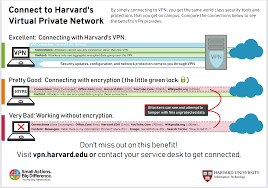The Role of VPN in Network Security
Virtual Private Networks (VPNs) play a crucial role in enhancing network security for individuals and organisations alike. In today’s digital age, where cyber threats are prevalent, implementing a VPN is considered a fundamental measure to safeguard sensitive data and ensure secure communication over the internet.
What is a VPN?
A VPN creates a secure and encrypted connection between a user’s device and the internet. By routing your internet traffic through an encrypted tunnel, VPNs protect your data from potential eavesdroppers, hackers, or other malicious entities who may be trying to intercept it.
Enhanced Privacy and Anonymity
One of the primary benefits of using a VPN is the enhanced privacy and anonymity it provides. By masking your IP address and encrypting your online activities, VPNs prevent third parties from tracking your browsing behaviour or identifying your physical location. This is particularly important when accessing public Wi-Fi networks or when travelling abroad.
Securing Remote Access
For businesses with remote employees or multiple office locations, VPNs offer a secure way to connect to the corporate network from any location. Through encrypted connections, employees can access company resources, files, and applications without compromising sensitive information. This ensures that data transmitted between remote devices and the corporate network remains protected from potential cyber threats.
Bypassing Geographical Restrictions
VPNs also enable users to bypass geographical restrictions imposed by content providers or governments. By connecting to servers in different locations around the world, users can access region-locked content such as streaming services or websites that may be restricted in their own country.
Choosing the Right VPN
When selecting a VPN provider, it is essential to consider factors such as encryption protocols used, server locations available, logging policies, and speed performance. Opting for reputable VPN services with strong encryption standards and a strict no-logs policy can help ensure maximum security and privacy for your online activities.
In Conclusion
In conclusion, VPNs are invaluable tools for enhancing network security by encrypting data transmissions, protecting privacy, securing remote access, and bypassing geographical restrictions. Whether you are an individual looking to safeguard personal information or a business aiming to secure sensitive data transmissions, incorporating a VPN into your network security strategy is essential in today’s interconnected digital landscape.
Understanding VPNs in Network Security: Definitions, Examples, Applications, and Security Benefits
What’s VPN mean?
Virtual Private Network (VPN) is a technology that establishes a secure and encrypted connection between a user’s device and the internet. By creating a private tunnel through which data is transmitted, VPNs ensure that sensitive information remains protected from potential threats such as hackers or eavesdroppers. Essentially, VPNs serve as a shield for online activities, safeguarding privacy, enhancing security, and providing anonymity by masking the user’s IP address. In essence, VPNs play a critical role in network security by ensuring secure communication over public networks and offering users peace of mind when accessing the internet.
What is VPN and example?
A VPN, or Virtual Private Network, is a technology that creates a secure and encrypted connection over the internet, allowing users to protect their data and online activities from potential threats. An example of a VPN in action would be a remote worker accessing their company’s internal network securely from a public Wi-Fi hotspot. By using a VPN, all data transmitted between the remote worker’s device and the corporate network is encrypted, ensuring that sensitive information remains secure even when connected to untrusted networks. VPNs are essential tools for enhancing network security and ensuring privacy in an increasingly interconnected digital environment.
Why do we use VPN?
The use of Virtual Private Networks (VPNs) in network security is essential for several reasons. VPNs provide a secure and encrypted connection that protects sensitive data from potential threats such as hackers, eavesdroppers, and cybercriminals. By masking IP addresses and encrypting online activities, VPNs enhance privacy and anonymity, ensuring that users can browse the internet securely without the risk of their data being intercepted. Additionally, VPNs enable secure remote access to corporate networks for employees working from various locations, safeguarding data transmissions and maintaining confidentiality. Overall, the primary purpose of using VPNs is to establish a secure communication channel that protects information integrity and confidentiality in an increasingly interconnected digital environment.
What is VPN use for security?
Virtual Private Networks (VPNs) are utilised for security purposes to establish a secure and encrypted connection between a user’s device and the internet. By creating a virtual tunnel that encrypts data traffic, VPNs protect sensitive information from potential threats, such as hackers or eavesdroppers, ensuring that data remains confidential and secure during transmission. VPNs play a crucial role in safeguarding privacy, anonymising online activities, securing remote access to corporate networks, and bypassing geographical restrictions, making them an essential tool for enhancing network security in today’s digital landscape.

